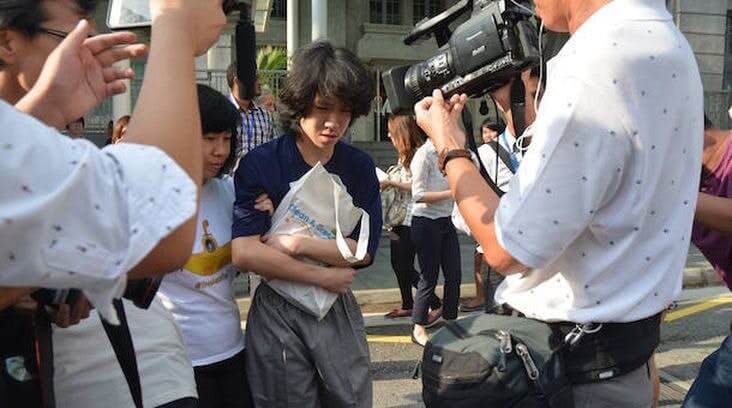On August 15, the Special Rapporteur condemned the government of Singapore for prosecuting 17-year-old blogger Amos Yee on charges of “wounding religious or racial feelings.” Mr. Yee published several videos that contained language disparaging devotees of Islam and Christianity, as well as their religious beliefs. Using profanity, Mr. Yee called Christians “frauds” and accused them of “cherry pick[ing]” the compassionate verses from the bible while “completely ignoring the verses that contradict them.” The Special Rapporteur’s opinion stressed that, although Mr. Yee’s videos may be “offensive, shocking and disturbing,” the language and means of expression he used should not be criminalized as hate speech because they do not constitute “serious and extreme instances of incitement to hatred.”
“Incitement is an altogether different standard than what shocks or offends. Yee’s tongue-in-cheek and even crass videos belittling the deeply-held beliefs of Christians and Muslims may understandably offend any religious person watching them. But in the interest of allowing societies to evolve democratically in a free marketplace of ideas, the international legal prohibition on ‘hate speech’ should never extend to comments that fall short of inciting imminent violence,” said HRF president Thor Halvorssen. “With this latest opinion, the Special Rapporteur is removing satirical videos and language of the type used by Mr. Yee from the vague and widely-abused concept of ‘hate speech.’ We applaud this development as an important first step in the right direction,” added Halvorssen.
In 2012, then Special Rapporteur Frank La Rue recommended that “only serious and extreme instances of incitement to hatred be prohibited as criminal offences” in order to prevent the enactment of abusive hate speech laws.
In spite of Mr. La Rue’s recommendation, however, the office of the Special Rapporteur did not apply the standard to any specific case – thus the scope of “serious and extreme” incitement remained undefined. Mr. Kaye’s recent opinion on Yee’s prosecution is the first application of the standard since its inception in 2012.
“International law’s ‘hate speech’ prohibition has increasingly led to the criminalization of legitimate opinions that have ethnic, national, racial, or religious overtones, because any critical discussion of these topics in the public arena is always controversial and has the potential to offend,” said Javier El-Hage, chief legal officer of HRF.
“Under the Special Rapporteur’s new reading of the hate speech prohibition, the criminal investigations of the satirical publication Charlie Hebdo and stand-up comedian Dieudonné in France would have been a violation of international law. Both the offensive cartooning of Mohammad and Jesus by the magazine and the Muslim comedian’s insensitive comments after the attack on Charlie Hebdo would have been protected under international law, and the French government would have been admonished and called to allow both instances of attempted humor,” added El-Hage.
“Now, consider that France is home to the authors of the Encyclopédie and one of the world’s most tolerant and liberal democracies. In this context, it’s no surprise that the authoritarian government of Singapore wants Yee behind bars. International law must start protecting contrarians like Amos Yee,” El-Hage concluded.
According to Article 20 of the International Covenant on Civil and Political Rights (ICCPR), “Any advocacy of national, racial, or religious hatred that constitutes incitement to discrimination, hostility, or violence shall be prohibited by law.”
